Jiangnan Cheng
Task-Aware Network Coding Over Butterfly Network
Jan 28, 2022
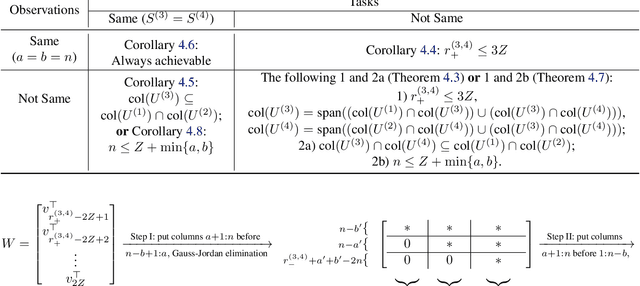
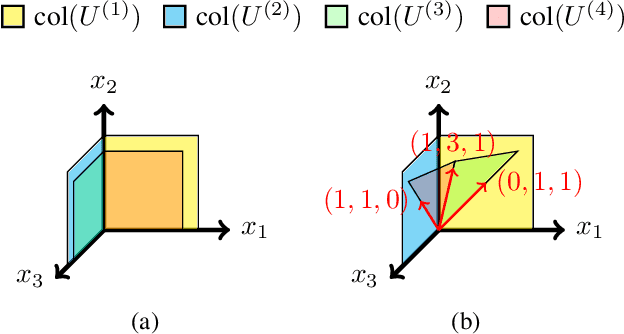

Abstract:Network coding allows distributed information sources such as sensors to efficiently compress and transmit data to distributed receivers across a bandwidth-limited network. Classical network coding is largely task-agnostic -- the coding schemes mainly aim to faithfully reconstruct data at the receivers, regardless of what ultimate task the received data is used for. In this paper, we analyze a new task-driven network coding problem, where distributed receivers pass transmitted data through machine learning (ML) tasks, which provides an opportunity to improve efficiency by transmitting salient task-relevant data representations. Specifically, we formulate a task-aware network coding problem over a butterfly network in real-coordinate space, where lossy analog compression through principal component analysis (PCA) can be applied. A lower bound for the total loss function for the formulated problem is given, and necessary and sufficient conditions for achieving this lower bound are also provided. We introduce ML algorithms to solve the problem in the general case, and our evaluation demonstrates the effectiveness of task-aware network coding.
Task-aware Privacy Preservation for Multi-dimensional Data
Oct 05, 2021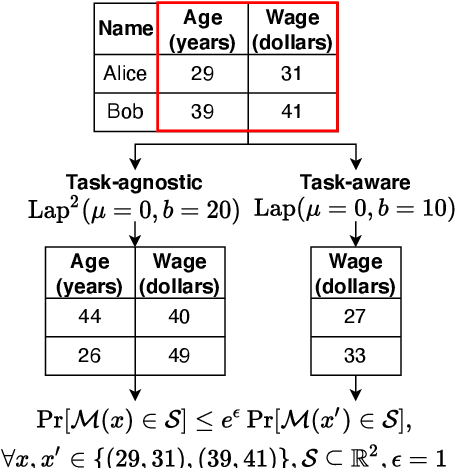

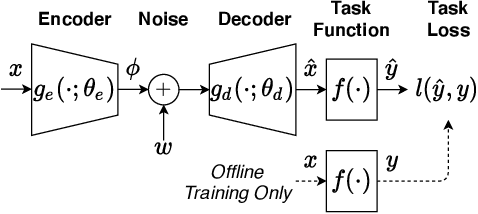
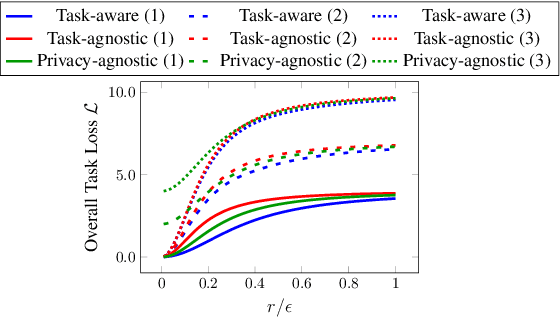
Abstract:Local differential privacy (LDP), a state-of-the-art technique for privacy preservation, has been successfully deployed in a few real-world applications. In the future, LDP can be adopted to anonymize richer user data attributes that will be input to more sophisticated machine learning (ML) tasks. However, today's LDP approaches are largely task-agnostic and often lead to sub-optimal performance -- they will simply inject noise to all data attributes according to a given privacy budget, regardless of what features are most relevant for an ultimate task. In this paper, we address how to significantly improve the ultimate task performance for multi-dimensional user data by considering a task-aware privacy preservation problem. The key idea is to use an encoder-decoder framework to learn (and anonymize) a task-relevant latent representation of user data, which gives an analytical near-optimal solution for a linear setting with mean-squared error (MSE) task loss. We also provide an approximate solution through a learning algorithm for general nonlinear cases. Extensive experiments demonstrate that our task-aware approach significantly improves ultimate task accuracy compared to a standard benchmark LDP approach while guaranteeing the same level of privacy.
Data Sharing and Compression for Cooperative Networked Control
Oct 05, 2021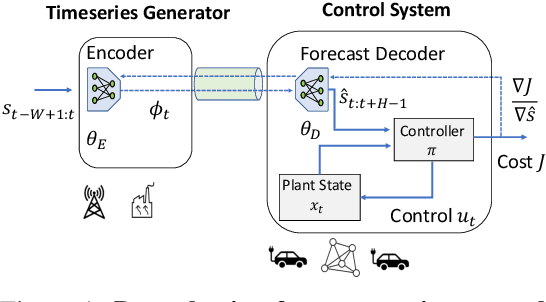
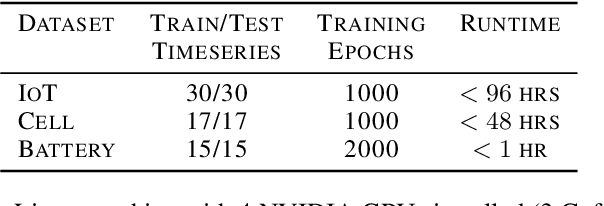
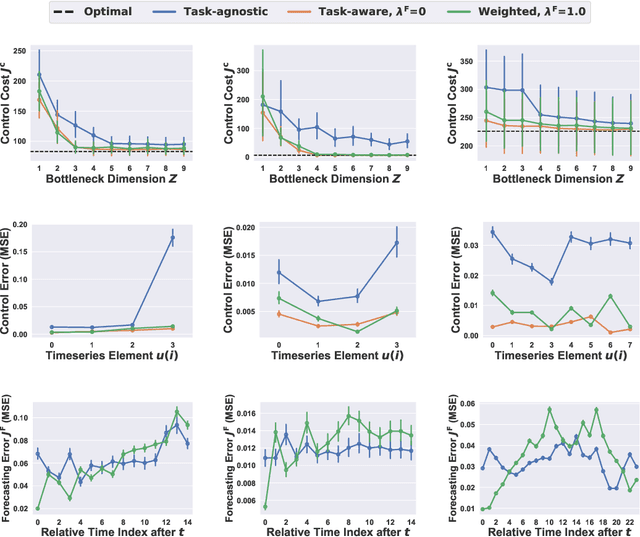
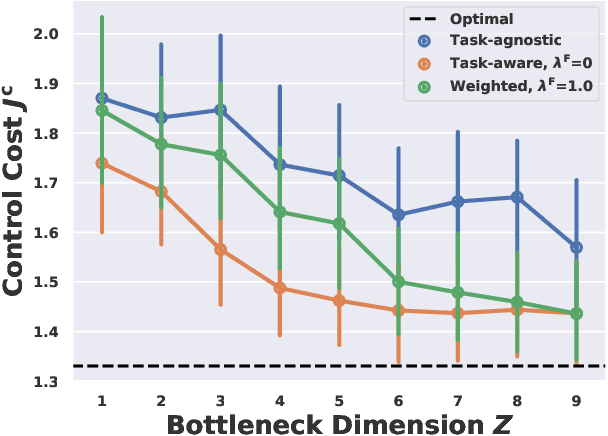
Abstract:Sharing forecasts of network timeseries data, such as cellular or electricity load patterns, can improve independent control applications ranging from traffic scheduling to power generation. Typically, forecasts are designed without knowledge of a downstream controller's task objective, and thus simply optimize for mean prediction error. However, such task-agnostic representations are often too large to stream over a communication network and do not emphasize salient temporal features for cooperative control. This paper presents a solution to learn succinct, highly-compressed forecasts that are co-designed with a modular controller's task objective. Our simulations with real cellular, Internet-of-Things (IoT), and electricity load data show we can improve a model predictive controller's performance by at least $25\%$ while transmitting $80\%$ less data than the competing method. Further, we present theoretical compression results for a networked variant of the classical linear quadratic regulator (LQR) control problem.
 Add to Chrome
Add to Chrome Add to Firefox
Add to Firefox Add to Edge
Add to Edge